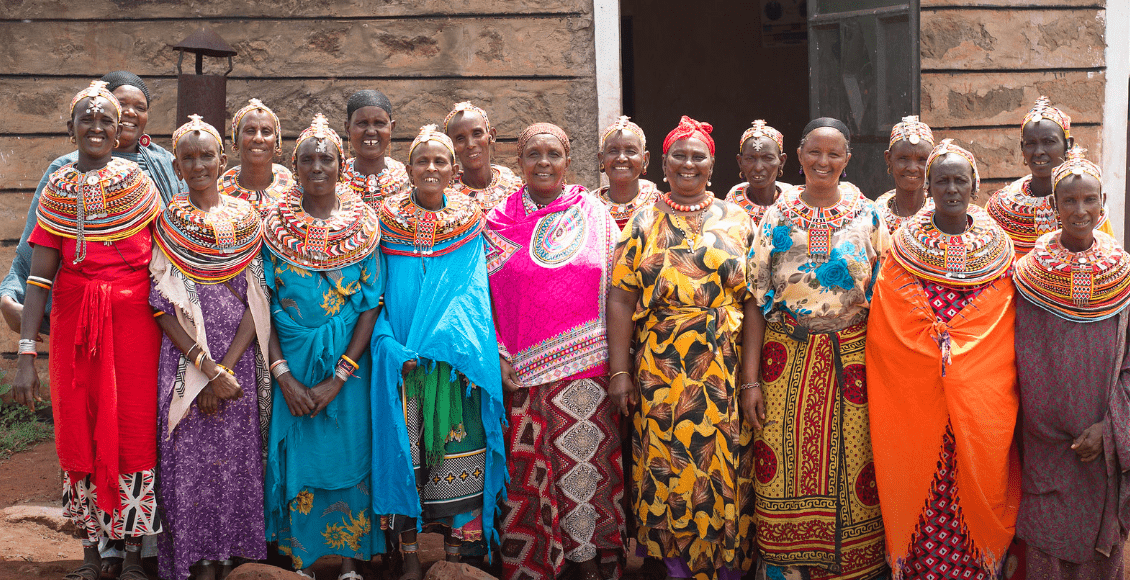
In Kenya’s Northern Frontier, at the edge of Marsabit National Park, rests Karare town. Nondescript to passersby, Karare serves as supply point for a precious commodity: milk.
Sabdio Logal, a woman and mother who has overcome numerous challenges, has called Karere home for several years. “My husband was in Nairobi so I would stay home and not do anything at all. Many days my children and I would lack food and could only survive with milk from the few cows and goat that we raised,” Sabdio recalls.
She tried to make the most of the little she had. “I would wake up at 4 am, milk the cows then walk 30 kilometres to Marsabit town to sell 5 litres of milk. Many times, by the time I would arrive, the milk had curdled and could not be sold. So, I would walk back home empty handed, with no milk nor money. My three children and I would often sleep without eating,” Sabdio recounts.
“When my son would ask me if there was any food, I would explain to him that there wasn’t any. We would then milk the cows together in the evening, drink what we got and sleep.”
Sabdio Logal, Kenya LMS participant and Mount Marsabit Women’s Group Founder
On the days she was able to sell her milk, she used the Ksh 250 (US$2.5) she earned to buy second-hand clothes and githeri (boiled maize and beans) for her children. To make ends meet, Sabdio was forced to sell her assets, “We would have to sell our livestock in order to pay for things like school fees,” Sabdio recollects.
Milk Seller Unites Women Through Women’s Group
Sabdio recognized that her situation was not unique. Many other women in the area faced the same challenges. In 2010, she decided to do something about it. “I brought the women together and we decided to form a group to see how we could make the most out of the milk we had.” This was the birth of the Mount Marsabit Women’s Group. Members started to collect their milk, boil it, sell their product in Marsabit town, and share the profits.
This arrangement worked for some time, but the women then realized that their mixed milk would spoil before they boiled it. “We used traditional methods to try [to] preserve the milk. Some would use herbs, while others would smoke it. We came to find out later that these different methods affected the quality of the milk,” Sabdio explains.
Project Trains Group In Milk Preservation Techniques & Equips Them With Business Skills
In 2018, Mount Marsabit members connected with the ACDI/VOCA-implemented USAID Feed the Future Kenya Livestock Market Systems (LMS) Activity at its Marsabit office. “We explained to the LMS team that we [had] problems with milk handling and storage, as the traditional containers and methods of preserving were failing us,” states Sabdio. In turn, LMS began “to train the women on how to handle milk as well as hygienic standards of milk storage,” explains Guy Yattani, LMS program officer.
In addition to trainings, LMS also provided the women’s group with milk containers, freezers, and a water tank. The group has since thrived. Sabdio explains, “Since LMS came, we have seen a growth in the proceeds we get from milk. We are now able to not only utilize milk brought by group members, but [we] also have the capacity to buy and store milk from other producers. This ensures that we have a constant supply of milk even during the dry season. Based on the bookkeeping training we also received via LMS, we are now able to track our sales, expenditure and profits.”
Through its partnership with LMS, the Mount Marsabit Women’s Group has grown to 30 members, bringing hope to women in the community who depend on milk for their survival. Beyond its members, Mt. Marsabit purchases milk from over 100 suppliers from the community. The group now trains all their suppliers on proper milk handling techniques to ensure that their supplies are uncontaminated milk.
“By offering training on proper milk handling techniques and providing them with aluminum containers, the group has reduced post-harvest losses from spoiled milk. We have trained our suppliers on the use of lactometers to detect contaminated milk before purchasing it. Less adulteration has increased trust from milk buyers and as a result, their customer base is continually growing. With processing equipment supplied by LMS, the group has diversified products to include skimmed milk, sour milk, and ghee, thus increasing the group’s profits.”
GUY YATTANI, KENYA LMS PROGRAM OFFICER
Through LMS support, and through their own resilience, the women of Mount Marsabit are able to provide for themselves and their families.
I have been able to support my children through school and always ensure that there’s food at home, even after the death of my husband. My eldest son, who would survive on a glass of milk per day, is now in his last year of secondary school. Thanks to the milk we supply, many women in the group are supporting their children to go to university and secondary school.
Sabdio Logal, LMS participant and women’s group founder
Learn more about our Kenya LMS Activity here.
Learn more about our work in Kenya here.
View more photos of the Mount Marsabit Women’s Group here.








